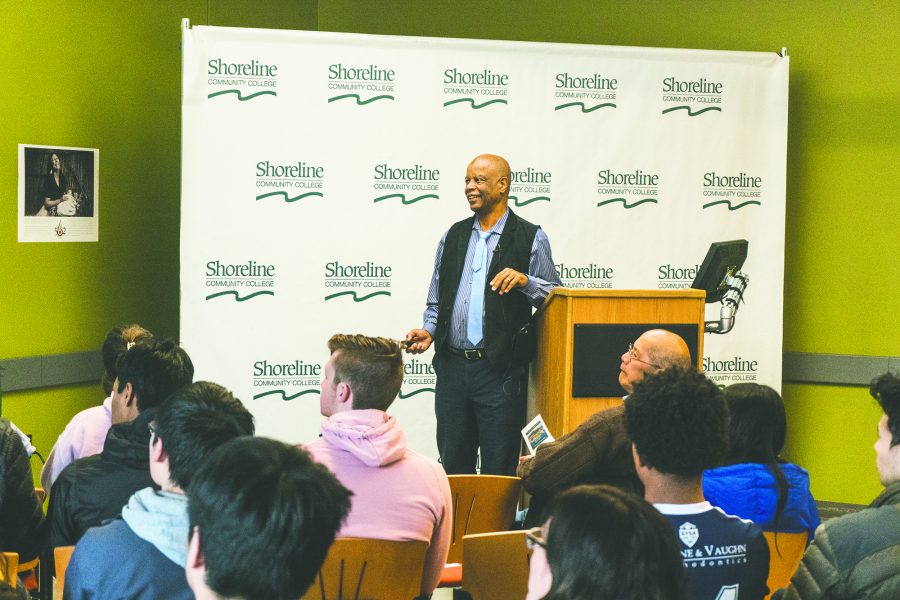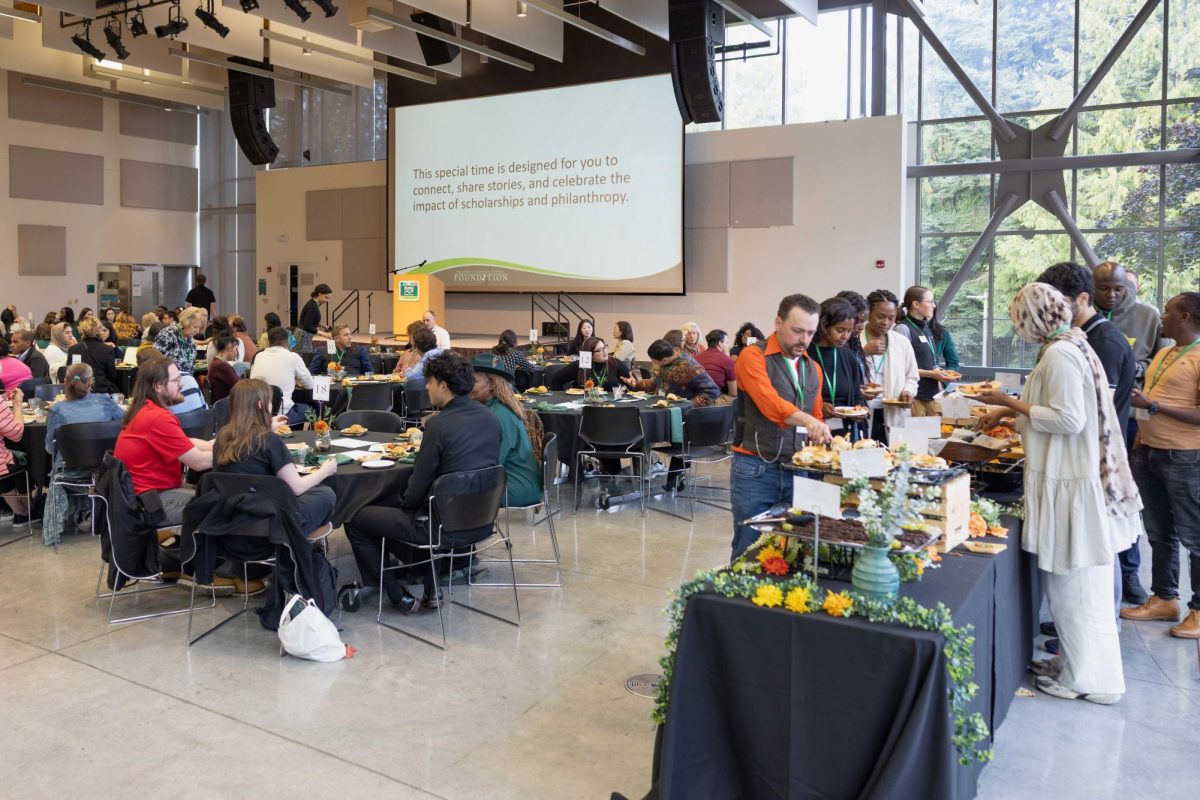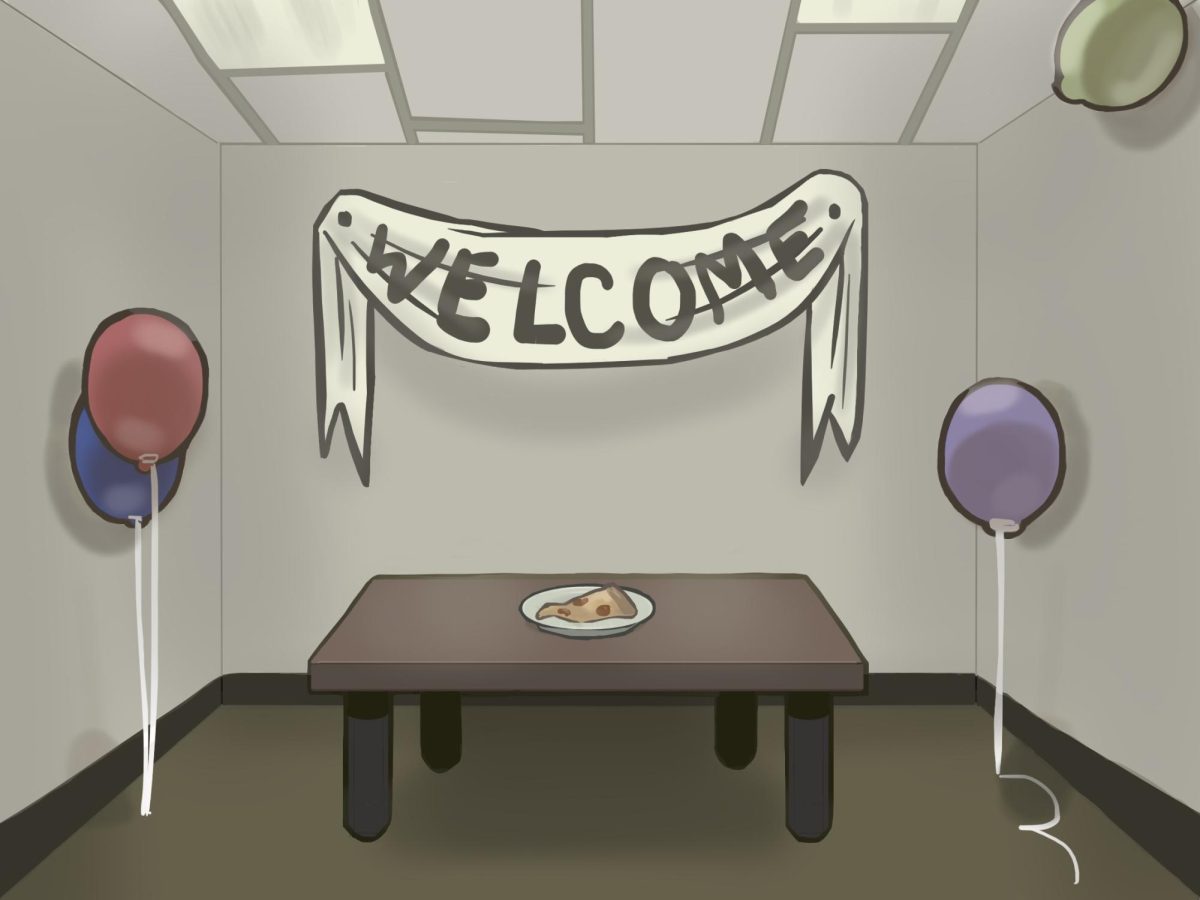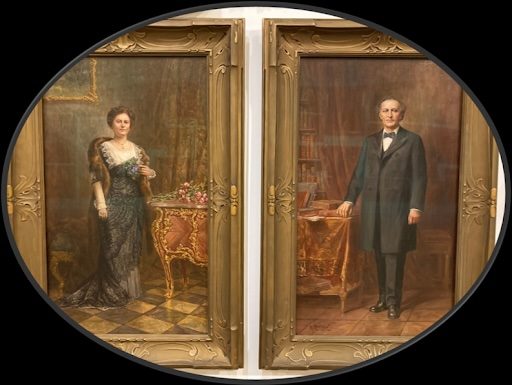STUDY ABROAD OPPORTUNITY FOR STUDENTS
An opportunity for students to earn credit while traveling to South Africa is coming up this summer.
Ernest Johnson, from SCC’s multicultural studies department, will lead a study abroad trip to the Cape Town area to study multicultural movements in South Africa from Aug. 25 to Sept. 22.
Johnson spoke to students and the greater community of Shoreline about South Africa on March 7 in the Quiet Dining Room.
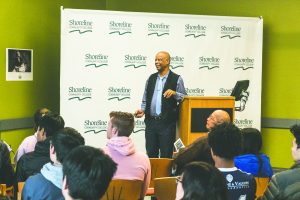
During his talk, Johnson discussed parallels between the colonial histories of America and South Africa. He said that much like how native peoples were displaced and marginalized by European settlers in America, many of the native Khoi-San were displaced and marginalized by Boer settlers (descendants of Dutch colonists) after the Boers were pushed out of the Cape Colony by the British.
Johnson continued, saying that from 1948 to 1994, South Africa had a white supremacist policy of apartheid, comparable to Jim Crow laws and Indian removal policies.
Johnson said there were also parallels between American and South African civil rights movements. In America, people watched as protesters were attacked by dogs and water cannons while in South Africa, people watched as protesters were shot and killed by police during the Sharpeville massacre.
Johnson also described the parallels between civil rights leaders. In America, Martin Luther King Jr. led the Southern Christian Leadership Conference from 1957 until he was assassinated in 1968. In South Africa, Albert Luthuli led the African National Congress (ANC) from 1952 until he was assassinated in 1967. Both men received the Nobel Peace Prize for their leadership in nonviolent struggle.
Johnson said that after the Sharpeville massacre, the ANC formed a military wing and became “less nonviolent.”
When Nelson Mandela became the president of South Africa, following the end of apartheid, inequality was still a problem, according to Johnson, but instead of retaliating against the Boers for the decades of oppression they faced, Mandela wanted to create a multicultural society in which everyone was equal.
Describing the political climate in South Africa today, Johnson said there is a lot of hope in the country but also that many people are locked into the past. He said he visited an upper-class Rotary Club, expecting people to be filled with multicultural appreciation, but found that many of the men he talked to were more disillusioned with the multicultural order and saw the ANC government as incompetent. He said they avoided walking through diverse neighborhoods at night and would avoid walking on the same side of the road as people who look different from themselves.
Johnson said nativism has become an issue in many townships as people immigrate to South African from other African countries, looking for a better life.
When asked about Cape Town’s ongoing water shortage and whether it will affect the study abroad trip, Johnson said that if the rains don’t come this rainy season, it could add additional costs to the trip because of the need for bottled water and could lead to extra limits on water usage.
Johnson described the study abroad trip, saying that students interact with a lot of people in South Africa, learn a little bit of the local languages, do outreach work, visit schools and do a homestay.
When asked about the homestay portion of the study abroad trip, Johnson said that the homestay is in Longa township and that he stays within walking distance of all the students, who stay with nurses, teachers and businessmen in the wealthier part of town, with electricity and running water. He said they visit an in-home bar, parties and even a local shaman in the township. They always travel in groups to guarantee safety, even for short distances, and can even be escorted by children just to make sure students are seen as guests of the town.
As part of the trip, Johnson said students get to visit the world’s largest elephant park, outside Port Elizabeth. He said they also visit Mandela’s prison cell, which is now a museum, and the historically multicultural Bo-Kaap neighborhood in Cape Town.
Rebekah Thorne, who went on the trip in 2015, said “this is not an experience to be missed.”
Applications for the study abroad trip are available at shoreline.edu and must be turned in to the International Programs Office in PUB room 9303 by April 10 to join the trip.
By Tyler Hanthorn,
Staff Writer
Photo by Aditya Wiputra


